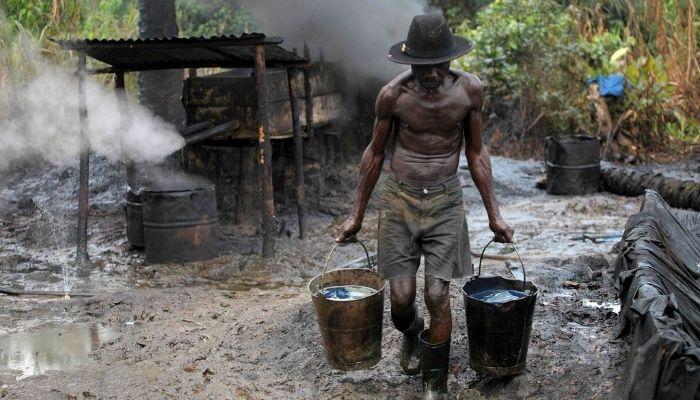Industry experts have warned that Nigeria is losing billions of dollars daily to crude oil theft, vandalism, and wastage, urging urgent digitalisation of production and monitoring systems to safeguard the economy.
Presenting a joint paper at a leadership forum in Houston, U.S., Charles Deigh, a petroleum engineer at Nigerian Agip Oil Company, and Dr. Oluwatoyin Gbadeyan, a mechanical engineer and researcher, described Nigeria’s oil validation system as “outdated and opaque,” creating loopholes for theft and inefficiency.
They argued that every barrel of crude oil should translate to national prosperity but that poor accountability and sabotage were undermining government revenue and economic development.
“This is not just unfortunate — it is unacceptable. Nigeria cannot afford to let another barrel go to waste. We need bold, transformative action,” they said.
The experts acknowledged initiatives by the Nigerian Upstream Petroleum Regulatory Commission, including the Nigeria Upstream Measurement System, the Automated Hydrocarbon Accounting System, and the metering provisions of the Petroleum Industry Act 2021. However, they cautioned that without full enforcement, these efforts risk becoming “empty gestures rather than game-changers.”
Oil theft, spillage, and wastage have long been a concern in Nigeria. According to the United Nations, at least 13 million barrels of crude oil—about 1.5 million tonnes—have been spilled since 1958 in more than 7,000 incidents. While many reports have held oil corporations responsible, the federal government maintains that international criminal syndicates are behind large-scale theft, exploiting security lapses.
Group Chief Executive Officer of the Nigerian National Petroleum Company Limited, Bashir Ojulari, recently described oil theft as a sophisticated cross-border crime requiring global collaboration to combat effectively.
As a solution, the experts recommended deploying digital technologies such as Internet of Things (IoT) sensors, drones, satellites, blockchain tracking, and artificial intelligence across oil infrastructure. They argued this would curb losses of an estimated 200,000 barrels per day, restore investor confidence, enhance transparency, and free resources to fund critical infrastructure, schools, and hospitals.
They stressed, however, that technology alone would not resolve the problem without strong government action, strict enforcement of the PIA, and consequences for non-compliance. They also urged oil companies to invest in sustainable monitoring systems and called on host communities to support transparency as a path to shared prosperity.
“Nigeria stands at the crossroads of opportunity and decline. Oil theft and inefficiency are not inevitable — they are the consequences of inaction and neglect,” the experts warned.

